Tesla Raises Prices Twice This Week
Tesla is receiving a lot of attention for having increased prices twice in one week. The Model 3, often presented as the company’s most-affordable option catering to the masses, now starts at $48,440 in the United States. Its crossover equivalent, the Model Y, now starts at a whopping $64,400 while larger products have surpassed the six-figure point of entry. Despite being the brand’s oldest model, the Model S saw increases over the summer (when it was just $90,000) and has since settled into $101,200 before you’ve even said the words Plaid or Full Self Driving. But the Model X remains even more expensive at $116,200.
Worse yet, those who can afford such vehicles won’t even be able to get them in a timely fashion. Despite weathering COVID restrictions rather well vs legacy automakers, supply chain issues seem to have caught up with the EV manufacturer. Wait times on order vehicles are now several months long. Some customers are being told that they’ll likely have to wait until 2023, specifically those hoping to score a Model X.
Opinion: EV Discourse Once Again Lacks Nuance
Electric vehicles have once again become a political football.
As someone who lived through the Chevrolet Volt discourse all those years ago, I’m getting a sense of déjà vu.
Toyota Cutting Production By 20 Percent Next Month
Earlier this week, we covered Toyota stressing over the feasibility of its current production plans. Automakers around the world are presently trying to suss out how to maintain solid profitability with diminished output, with Japan’s largest manufacturer suggesting the present state of the world might force it to do likewise.
While we assumed the resulting decisions would take a couple of weeks for Toyota to finalize, as it considered its many options, the company announced on Friday that it would need to cut domestic production by 20 percent for the month of April. The automaker framed this as part of its preexisting “recovery plan” necessary to account for supply chain issues that never seem to end, saying that diminished output would gradually normalize in Japan over the spring.
Toyota Considers New Production Strategy As World Burns
Toyota Motor Corp. is reconsidering its existing production strategy, citing ongoing global issues that are hindering its ability to manufacture vehicles at a normal pace.
Like most other automakers, Toyota has endured COVID restrictions, supply chains bottlenecks, component shortages, at least one cyberattack, and some new obstacles stemming from Russia’s invasion of Ukraine. These issues have already encouraged General Motors to pursue lower output as it focuses on selling on higher-margin vehicles. Though it’s hardly the only automaker signaling diminished production for 2022. Even the National Automobile Dealers Association is assuming 2022 will be another year of extra-tight inventories and wild markups. It’s something the industry was already doing, with Toyota becoming the next company opting to rejigger its targets to account for hard times.
GM Dumps Lordstown Motors
Lordstown Motors has gone from the savior of Ohio to just another blowhard electric vehicle startup. Last year, it became the focus of investment research firm Hindenburg Research and an incredibly damning report that accused the company of fraudulent behavior. The paper cited thousands of non-binding, no-deposit orders and was proven right a few months later when the startup announced it didn’t actually have enough money to commence commercial production. By June, Lordstown was under investigation and losing top-ranking executive with nothing to show for itself other than a factory it purchased from General Motors at a discount where it installed a pointless solar panel array. The company said it would be selling the plant to Foxconn Technology Group (Hon Hai Technology Group) in October, along with $50 million in stock, with the plan being to make the Taiwanese firm a contract assembler for the Lordstown Endurance pickup.
It’s going to need that money too because GM is severing ties with the startup and has confirmed it offloaded its remaining stock over the holidays. While the Detroit-based automaker only held about $7.5 million worth of shares, it still represented about 5 percent of Lordstown and continued support of a business that looked to be foundering.
Russia-Ukraine War Adding to Supply Problems, Auto Industry Reinventing Itself
Volkswagen Group has stalled production in Germany, citing an inability to obtain sufficient parts from Ukraine. The automaker reportedly is lacking sufficient electrical components for its Zwickau-Mosel plant and the Dresden-based “Transparent Factory” — both of which are responsible for manufacturing VW and Audi-branded electric vehicles.
While the automaker declined to identify any specific suppliers, it said that Zwickau-Mosel will be down for at least four days as the Dresden facility will only need three days of downtime. That should put them both back online by the end of the week. But that’s hardly a guarantee and problems abound elsewhere, some of which are starting to feel borderline ordinary, as the industry continues reinventing itself.
Volkswagen AG Pressing Potential Porsche IPO
Volkswagen Group is apparently in talks with Porsche Automobil Holding SE about a potential initial public offering (IPO) for the Porsche luxury/sports brand. According to a statement from VW, the duo has already negotiated the agreed-upon frameworks and is in final discussions as to when they want to move forward.
Weeks of rumor preceded corporate confirmation, making it seem like the proposed deal was already a shoo-in. But any final decisions will still need to be approved by the management and supervisory boards — something Volkswagen Group said has yet to happen.
Industry Begins Blaming the Bridge, Truckers in Ottawa
With the Ambassador Bridge having been cleared by police over the weekend, those protesting government mandates have literally been relegated to the sidelines. Canadian officers from a variety of departments, including Ontario Provincial Police, are now situated at relevant intersections and Windsor, Ontario, has declared a state of emergency in case demonstrators return.
But don’t think the story is over. The trucker blockade certainly caused trouble for the automotive sector and it suddenly seems interested in rolling the event into the industry’s ever-expanding list of excuses. Now that the rigs have all been removed, spokespeople have been chiming in and they’re being presented as rather single-minded on the matter. They want more assistance from the government to quash any protests that might impact their bottom line and are happy to have something else to blame for why the broader industry remains in such a pitiful state.
DOT Readies Billions for National EV Charging Network, Chaos Ensues
The U.S. Department of Transportation (DOT) announced today that it will distribute $5 billion to establish electric-vehicle charging along the interstate highway system. Managed by the newly formed Joint Office of Energy and Transportation formed after the $1.2-trillion Infrastructure Investment and Jobs Act (IIJA) passed in Congress, the federal spend is a joint operation between the DOT and U.S. Department of Energy.
By 2030, the federal government is hoping to have a network of 500,000 charging stations in a bid to reduce range anxiety and spur EV adoption. But it wants individual states to make the necessary investments to connect the highway-based network to cities and towns. As you might have guessed, Democrat lawmakers have broadly supported the imitative while Republicans are calling it too expensive and a distraction from other aspects of U.S. infrastructure in need of maintenance.
Abandoned History: General Motors' High Technology Engine, and Other CAFE Foibles (Part III)
In today’s edition of Abandoned History, we return once more to the late Seventies engines of General Motors. After the disaster which was the V8-6-4 and the subsequent release of the quite flawed HT4100 V8, we take a sidestep today into diesel. Time for a turn with the cost-cut cast iron Oldsmobile oil burner that accompanied the troubled gasoline engines at GM dealerships across the country.
Where Are People Waiting the Longest to Buy a New Car?
Nobody should envy car shoppers right now. With production shortages ongoing, there’s never anything you want on the lot, and what is there is likely to be grotesquely overpriced.
This has encouraged consumers to wait longer before replacing their current ride, which is statistically likely to be far older than years past. But not everyone has the same level of patience or financial wellbeing, meaning certain parts of the country are seeing longer intervals between cars than others. There are also regional inventory disparities to account for, encouraging analytics firm Growth from Knowledge (GfK) to conduct an investigation into which parts of the United States are waiting for the longest to procure a new automobile.
Rare Rides Icons: The History of Stutz, Stop and Go Fast (Part I)
Stellantis Makes Decision on Vaccine, Truckers Head to Ottawa
Following the U.S. Supreme Court’s decision to block proposed OSHA regulations backed by the Biden administration, it was assumed that automakers would quickly begin weighing in on vaccine rules now that there would be no federal obligation. However, they’ve actually been keeping quiet on the matter, with Stellantis being the first manufacturer to walk back previous requirements.
While the automaker had previously been working up to companywide vaccine mandates, it pushed back its vaccine deadline for early January. This week, Stellantis confirmed that it will be abandoning the scheme entirely after suggesting that the existing compliance rates were sufficient. Though something tells me that executives have become aware of the swelling pushback against COVID restrictions and became concerned with the optics.
Abandoned History: General Motors' High Technology Engine, and Other CAFE Foibles (Part II)
In our last edition of Abandoned History, we covered the years leading up to the release of the Cadillac High Technology V8. Used almost exclusively in 1981, the disastrous V8-6-4 had a primitive engine management system that could deactivate either two or four cylinders on Cadillac’s traditional V8. And while the idea was sound, the technology and engineering behind it were not. Cadillac was left in a bind and needed a replacement engine immediately. But the engine of choice was not finished, and not ready for primetime. Ladies and gentlemen, welcome the medium-rare HT4100.
Will Intel's Ohio Chip Plants Fix Automotive Supply Chains?
Intel has announced a $20 billion investment to transform a 1,000-acre plot in New Albany, Ohio, into the latest addition to its U.S. chip-manufacturing hub. Construction is scheduled to commence later this year with operations starting in 2025. But everyone’s wondering if it is going to be enough to rectify the pathetic state in which domestic vehicle production currently finds itself.
Toyota Confronting Widespread Factory Stalls in Asia
Toyota Motor Corp is currently having to contend with idle factories in Asia, reducing the automaker’s estimated output by over 47,000 units this month. Shockingly, it’s not alleged to have anything to do with the semiconductor shortage that’s been wreaking havoc on Western markets.
With chip production having been localized primarily in China and Taiwan, Asian suppliers have had better access to them. But Eastern markets have still been subjected to other routine plant closures due to supply chain restrictions stemming from the pandemic. Existing protocols in China, combined with renewed restrictions in Japan, have created a situation impacting numerous automakers with Toyota announcing this week that it probably won’t reach its goal of manufacturing 9 million cars this year — though it made sure to include the ongoing semiconductor issue as relevant.
Abandoned History: Chrysler and the Colt, Captive Economical Import Time (Part II)
Chrysler had its first involvement with Mitsubishi Motors Corporation in 1971. With a considerable stock purchase by Chrysler, the two companies’ long-lived captive import cooperation began. Introduced immediately to Americans in 1971 as the Dodge Colt, the nameplate was on its second generation by 1977. We pick up in the middle of that year, as third-gen Colts started to arrive from Japan. In the unusual arrangement, brand new (and differently sized) Colts were sold alongside second-gen Colts during the same model year.
Mustang Production Paused at Flat Rock Assembly
Ford will be idling Mustang production this week due to an insufficient supply of semiconductor chips. For all the talk the industry made about getting over supply chain hurdles in 2021, manufacturers continue citing insufficient access to microchips as the primary obstacle preventing them from enjoying more routine operations.
The automaker confirmed the move on Tuesday, explaining that Michigan’s Flat Rock Assembly will be down until sometime next week.
Um, What? Survey Claims People Happier With Modern Car Buying Experience
A new survey from Cox Automotive is suggesting that people are relatively pleased with their trips to the dealership these days — at least compared to the last few years. According to the team that’s been crunching the numbers over at Automotive News, “Buyer satisfaction with the shopping experience from the research stage through delivery dipped to 66 percent in 2021.” Back in 2020, respondents claimed they were happy 72 percent of the time. But in 2019 Cox was only getting 60 percent of shoppers to say they had an okay time buying a vehicle.
The uptick in 2020 is obvious. Showrooms were devoid of customers, production shortfalls hadn’t yet become the norm, and dealers were selling just about everything at a discount — keeping prices low until 2021 sent them into the stratosphere. However, the outlet still framed it as a win against 2019, suggesting that consumers are more satisfied with their shopping experience than before the pandemic. It also claimed that people who purchased vehicles online, the no-haggle alternative to going to a dealership to argue in a small room, tended to be happier overall.
Abandoned History: General Motors' High Technology Engine, and Other CAFE Foibles (Part I)
A modern and efficient V8 of 4.1 liters, the HT4100 was the exciting way forward for Cadillac’s propulsion needs in the early Eighties. The engine came hot on the tail of a very iffy cylinder deactivation experiment, V8-6-4. Unfortunately, just like the cylinder games before and the Northstar after, the HT was plagued with issues that took years to iron out. The HT in its name meant High Technology but could’ve meant Halfway There. Let’s travel back to the Seventies and talk cylinders.
Lincoln Now Sells More Product in China Than U.S.
After years of Ford unsuccessfully trying to court the Chinese market in the same way General Motors did, Blue Oval has finally hit an important milestone. For the first time ever, the Lincoln luxury brand has achieved more sales in China than in the United States.
On Thursday, Lincoln announced that it had delivered more than 91,000 vehicles in China in 2021 – representing an increase of 48 percent increase against 2020. Meanwhile, the brand managed to lose ground in North America with just 86,929 sales for last year. That’s the worst Lincoln has seen in over a decade, though the company has basically witnessed its share of the U.S. market seesawing in the wrong direction since the 1990s.
Supreme Court Blocks OSHA Workplace Vaccine Mandates
A divided U.S. Supreme Court has blocked the Biden administration’s vaccine-or-test rule that would have been enforced by the Occupational Safety and Health Administration (OSHA) and impacted roughly 1.7 million automotive employees.
“Although Congress has indisputably given OSHA the power to regulate occupational dangers, it has not given that agency the power to regulate public health more broadly,” the court explained. “Requiring the vaccination of 84 million Americans, selected simply because they work for employers with more than 100 employees, certainly falls in the latter category.”
Canada Joins Mexico in Trade Dispute Against United States
Mexican and Canadian officials have been dropping hints that they’re not all that enthusiastic about the United States-Mexico-Canada Agreement (USMCA) since before Enrique Peña Nieto, Donald Trump, and Justin Trudeau all sat down to sign it in 2018. But just getting to that point required months of formal negotiations that rarely looked to be all that productive.
Sadly, things don’t seem to have changed now that the USMCA is in full effect. Last week, Mexico requested a dispute settlement panel under the terms of the trade pact to help resolve disagreements about the surprisingly contentious automotive content stipulations that determine whether or not vehicles and parts will be slapped with tariffs. Under the previous North American Free Trade Agreement (NAFTA), 62.5 percent of the vehicle’s components had to be sourced from member nations to be considered tax-exempt. In an effort to spur localized production, USMCA increased that number to 75 and not everyone is thrilled with the updated content requirements with Mexico claiming it’s not even sure how to apply them. Canada now intends to formally sign onto Mexico’s complaint against the U.S. over their divergent interpretation of rules.
Abandoned History: The Vehicle Production Group and Its MV-1, Accessible Mobility MPV
Historically speaking, the handicap accessible vehicle market in North America was catered to by aftermarket companies, who’d convert standard passenger vehicles (usually larger vans) to be accessible. But in the early 2000s, a couple of entrepreneurs had a new idea: A commercial vehicle designed from the get-go as accessible. Let’s talk about the Vehicle Production Group, it’s a bit of a wild ride.
Abandoned History: The Mercedes-Benz X-Class, Nissan Luxe
Sort of like the Cimarron we covered in our last edition of Abandoned History a couple of months ago, today’s vehicle is pretending to be more than it is. It’s the luxury X-Class truck Mercedes-Benz sold in markets outside the USA. Can you tell what it actually is?
Honda Trademarks ADX Name for Acura Brand
Honda has filed to trademark ADX with the United States Patent and Trademark Office (USPTO), presumably so it can use the name for an upcoming luxury model. While Honda has previously sold vehicles with alphanumeric monikers ending in the letter X, that’s literally Acura’s entire lineup and it’s supposed to be delivering a few new models to round out its rather limited selection.
December Auto Sales Still Looking Weak
While the official figures haven’t dropped, just about every outlet tracking new vehicle sales is projecting a significant decline in volume for December 2021. Showrooms have been trending toward the minimalist aesthetic since 2019 with the pandemic kicking things into overdrive as supply bottlenecks nullified practically every manufacturer’s ability to produce anywhere near its normal pace.
Last December was bleak, with sales falling by around 5 percent for the month as the typical transaction price for automobiles set new records. The U.S. market only saw 1.54 million sales, the lowest volume witnessed since December of 2014. But 2021 volumes are shaping up to be decidedly worse. This month is on track to fall by anywhere from 23 to 30 percent with retail sales barely cresting 1 million units as transaction prices for both new and used vehicles surpass all previous metrics.
Nikola to Pay $125 Million to Settle Fraud Charges, Founder in Dutch
Nikola Corp. has agreed to pay $125 million to settle charges levied by The Securities and Exchange Commission (SEC) that the company actively defrauded investors by providing misleading information about its technical prowess, production capabilities, and general prospects.
The settlement comes after a salvo of civil and criminal charges were launched against Nikola’s founder Trevor Milton, who got in trouble for convincing investors that the prospective automaker had fully functional prototypes boasting technologies other companies would have envied when that wasn’t actually the case. Milton was chided for using social media to promote false claims about the business, with his pleading not guilty to fraud charges brought up by the Department of Justice in July.
Opinion: Detroit Auto Show Waste of Taxpayer Money
The Detroit Auto Dealers’ Association recently got some good news. Michigan lawmakers have decided to give them a $9 million grant to put on a Detroit Auto Show — the first since 2019 — and effectively “reopen” one of the world’s biggest auto shows. And, while it’s good for the dealers, I have to admit that the news has left me angry with rage.
But why? I’m a car person, so I should be happy, right? After all, Detroit is a major show, packed with cool concept cars and big, international reveals. That stuff’s exciting, who wouldn’t want more of that!? But, sitting here and facing down the start of 2022, I can’t get past the feeling that the traditional auto show is dead — and should stay dead.
Can Automakers Really Cash In on Connectivity and Subscription Schemes?
A little over a decade ago, it seemed like everyone I knew was abandoning cable packages for online streaming services. They were cheaper, on-demand, and offered more choices with fewer advertisements. But as the years progressed, companies stopped selling their media to a handful of online video platforms and started building their own. Programming became more transient and isolated, forcing consumers to buy into additional subscription services. We’ve since hit a point where the overall consumer experience has diminished and grown more expensive, despite the steady influx of competition.
While automakers have been dabbling with subscription services of their own, their earliest attempts turned out to be such overwhelmingly bad deals that the public refused to play along. But they’re not giving up that easily. Industry players have been trying to figure out ways to charge customers indefinitely for years and are starting to settle upon subscription packages that can unlock hardware that’s already been installed into the vehicle or add software that can be downloaded via over-the-air (OTA) updates. Love or hate it, vehicular connectivity has opened up the door for new sources of revenue and businesses everywhere are eager to take advantage — with most companies projecting exceptionally healthy profits for the years ahead.
Toyota Announces EV Strategy, Readies $70 Billion for the Cause
On Tuesday, Toyota Motor Corp. announced a commitment of 8 trillion yen ($70 billion USD) toward the goal of achieving carbon neutrality someday. Though the concept of any multinational manufacturing entity totally nullifying their carbon footprint seems kind of laughable, so we’ll be referencing this as another electrification strategy — which is still a big deal considering how EV averse Toyota has been thus far.
Despite being an environmental trendsetter with the Prius Hybrid, Toyota has been hesitant to formally commit itself to transition its lineup toward being reliant on battery power. However, President Akio Toyoda has just proudly confirmed that the Japanese automaker would be earmarking the funds for exactly that purpose, noting that the brand (along with Lexus) would be spending the money through 2030 to make sure its global sales of battery electric vehicles (BEVs) reach 3.5 million vehicles annually. Though the most enjoyable aspect of the release was the direct manner it was presented, with Toyoda-san being impressively honest about modern automotive trends.
TTAC Television Review: American Auto Has Promise but Already Needs a Tune-Up
Not even 10 minutes into NBC’s preview of its upcoming workplace sitcom, American Auto, I had hopped into TTAC’s Slack channel to offer a negative appraisal.
That’s unusual for me – I tend to give a new show more than 10 minutes before judging – but I was struggling to find redeeming qualities. It’s one thing for a show about a fictional car company to get things about the auto industry wrong – much more on that in a bit – but this is a comedy, and I wasn’t laughing.
I dutifully forced myself to keep watching the rest of the two-episode, one-hour preview. The show got better – but it still needs work.
GM Canada Tells Unvaccinated Workers to Stay Home, Union Unhelpful
Unvaccinated workers from General Motors’ CAMI Assembly Plant have been removed from the facility and forced into unpaid leave. The automaker had a deadline set for December 12th to have all employees vaccinated, with Unifor previously having urged the company to postpone the date. The Western world has seen a surge of citizens protesting vaccine mandates this year, with Canadian unions conducting more than a few of their own. Though several organizers have said they’re operating independently due to a shared belief that Unifor was offering insufficient support to members and was effectively siding with automakers.
Corvette Production Halted Over Kentucky Tornadoes, TMMK Okay
Chevrolet’s Corvette plant in Bowling Green, Kentucky, will be seeing a week of downtime following the vicious tornadoes that swept through the United States over the weekend. With twisters populating Southern and Midwestern states, Kentucky became ground zero from some of the most devastating weather seen all year.
Governor Andy Beshear called for a state of emergency Saturday due to the extensive damage across the state, with Bowling Green yielding some of the most harrowing examples. While the Corvette factory was spared the total destruction endured by other buildings, General Motors has said the site will still need to remain closed so the necessary cleanup can be done.
Report: The End of 3G Could Leave Your Vehicle With Fewer Features
When people started burning down 5G towers in fear, the practice seemed a little misguided. But if you happen to be the owner of a connected automobile, there’s a chance you’ll be wishing enough of them had been taken down to delay those low-latency spires from becoming the default broadcasting network.
While you were probably aware that 3G cellular networks will be shut down in the U.S. next year so the telecom industry can focus in on 5G, you may not have been hip to the fact that this could totally nullify the connected features inside of your car. Unfortunately, loads of automobiles manufactured the early days of phone pairing and internet integration won’t be able to make the journey into 5G like the new phone or tablet you purchased. Worse yet, there are even some modern vehicles that are about to become a lot less feature rich with companies that have no intention of offering updates.
Used Vehicle Pricing Sets Another Record High
Used-vehicle prices set another record last month thanks to elevated demand and suppressed production of new cars. Depending on who you ask, the typical transaction fee for a secondhand automobile rose nearly 50 percent in November vs the same period in 2020. While the pandemic had meaningfully suppressed demand during that time, that’s still a staggering increase over any 12-month period.
Sharing Cox Automotive’s Manheim Used Vehicle Value Index, Automotive News nailed down the annual difference to a 44-percent increase. This also represents the November pricing index swelling by 3.9 percent against October, which is noteworthy in itself. But what does that look like in dollars?
Despite Automaker Profits, It Was Another Rough Year for Suppliers
When the pandemic convinced practically every industry to press pause in 2020, supply chains became so crippled that just getting sectors of commerce rebooted became a challenge in itself. It was the business equivalent of a twenty-car pileup, with the automotive industry being hit particularly hard due to the complexity of its own supply lines. While the following year represented an improvement, production failed to stabilize to pre-pandemic levels.
The solution for automakers and dealerships was to begin demanding more money for cars. With vehicles in short supply, the value of new and used models blew through the roof. This move kept automakers largely in the black for 2021, despite a general inability (or unwillingness) to manufacture products at the normal pace. However, it didn’t help suppliers, who are haven’t been able to tack on the same premiums to individual components while still having to cope with rising economic hurdles.
Elon Musk Continues Selling Tesla Shares
Tesla CEO Elon Musk has sold another 934,091 shares of the company, worth a hefty $1.01 billion, as a way to meet tax obligations related to the exercise of options to buy 2.1 million shares. But it’s just a drop in the bucket, as Mr. Musk’s offloading of Tesla stock has surpassed $10 billion overall. That’s roughly 10.1 million shares since the CEO asked Twitter users at the start of November whether or not he should dump 10 percent of his existing stake in the company following its big move to Texas.
Rising Fuel Prices Have Upended the Economy
Unless you’ve spent the last twelve months locked inside your home, then you’re probably dreading the next trip to the gas station. The average price for a gallon of 87 octanes has reached $3.40 in the United States. That’s about 50 percent steeper than it was at the start of 2021 and undoubtedly more than you’re wanting to shell out today. Though one cannot ignore the dizzying rates being advertised outside of British “petroleum parlors” or France’s many “un bordel pour voitures.” Canadians are also forced to endure higher gasoline prices, as the government tends to stack the taxes a little higher and the U.S. dollar tends to be more valuable. At least for now.
All you need to know for the purposes of this article is that fuel prices are up and it’s influencing the economy in some pretty dramatic ways.
Stellantis CEO Thinks EVs Are Too Troublesome
Stellantis CEO Carlos Tavares has said that the growing pressures being placed on automakers to shift toward electric-vehicle production are unsustainable and run the risk of the public getting subpar products at decidedly higher price tags. While we’ve seen automotive executives lambast new energy vehicles before, it’s grown rarer as governments around the world have continued incentivizing their existence and investors have been pouring money on startups delivering literally nothing more than the mere suggestion of more electrification.
Tavares’s words come from the Reuters Next conference, running counter to the event’s prevailing narrative of encouraging technological progress and social change. Attendees tend to be political officials, heads of finance, NGO leaders, and business executives sympathetic to the cause. But the Stellantis CEO definitely went off-script when he listed some of the shortcomings of electrification, adding that he felt the costs were “beyond the limits” of what was realistically feasible. It’s his belief that pursuing electrification at the current pace doesn’t take into account the larger financial picture.
Report: Biden Admin May Link Semiconductor Subsidies to Unions
Despite the semiconductor shortage having encouraged the automotive sector to repeatedly idle factories, word on the ground is that things are becoming more stable. Companies are seeing less production downtime overall and workers are reporting more reliable working conditions across the board. However, several automakers have continued to express concerns (e.g. Volvo), alleging that chip shortages could stretch deep into 2022, while the U.S. government ponders how to advance chip production in-country and become less dependent on Asian suppliers.
Commerce Secretary Gina Raimondo has been touring Michigan, meeting with union members and industry heads, and plans to urge Congress to move on a $52 billion in funding bill aimed at boosting domestic production. We’ve questioned the efficacy of the CHIPS Act before, primarily in relation to how the subsidies would be allocated. But there are new concerns that the plan will mimic the Biden administration’s EV subsidies by spending heaps of taxpayer money and giving union-backed organizations a larger cut.
Opinion: 'Nissan Ambition 2030' Was an Hour of Wishful Thinking
Nissan Motor Co. has confirmed plans to invest 2 trillion yen ($17.65 billion USD) over the next five years to accelerate its electric vehicle development program. Like most major manufacturers, the automaker wants to launch a bevy of electrified products over the next decade and derive a relevant portion of its income from EVs.
As explained by CEO Makoto Uchida on Monday as part of the “Nissan Ambition 2030,” the plan is to launch 23 new vehicles with some amount of electrification while it attempts to implement solid-state batteries into three concept vehicles that supposedly foreshadow future lineups. These include the battery-electric “Surf-Out” lifestyle pickup, “Max-Out” sports convertible, “Chill-Out” regular car, and “Hang-Out” adventure crossover. Though all three appear to be little more than drafts of vehicles Nissan would eventually like to build, boasting technologies that we’re not sure are feasible. For example, the Hang-Out is featured with a polygonal purple awning that oozes impossibly out of the vehicle’s roof. It lacks realism, which ended up being a central theme of the Nissan Ambition 2030 presentation that was broadcast on Monday.
JLR CEO Takes a Tumble In L.A.
Auto-show parties sometimes get out of hand. Most of the shenanigans don’t reach you, the car-buying public, for one reason or another. One major reason is lack of newsworthiness: It’s one thing if a lubricated PR rep confirms some new product that’s supposed to be secret. It’s another if a PR rep sings karaoke poorly.
One thing would make it to the pages of TTAC and maybe a rival site like Jalopnik. The other would not. No matter how bad some PR chief is at warbling “Sweet Caroline.”
Then again, if TMZ is in the house, all bets are off.
Ford Repurchasing $5 Billion in Debt, Tapping Into ESG & Green Bonds
Ford Motor Co. has announced a cash tender offer to repurchase up to $5 billion of the company’s high-yield debt in the hopes of rebalancing its budget after needing to borrow so much during the back-to-back-to-back production shutdowns incurred since the start of 2020. The automaker is retiring as much of the $8 billion in bonds the company issued at the start the coronavirus pandemic as it can and will be doing the same for some older bonds issued at similarly high rates (over 8 percent annually).
However this will be used to make room for environmental, social and corporate governance (ESG) initiatives and establish a “sustainable financing framework” the automaker said would be a first for North America. Ford clearly believes social governance investments will become increasingly routine and is attempting to showcase itself as one of the kinder, more forward thinking, and environmentally responsible multinational industrial concerns. Sort of like a fully armed M1 Abrams tank painted with peace symbols and hippie daises.
Nuro Raises $600 Million, Valuation Reaches $8.6 Billion
While the concept of mobility has often turned out to be a buzz phrase used by executives unsure of where to place hypothetical revenue streams and burgeoning technologies, it has simultaneously yielded a handful of enterprising business premises with the potential to stand on their own. Nuro, the American robotics company fielding pint-sized delivery drones, is among them and has made a case for itself by eliminating humans from the equation entirely and providing unique scenarios for its services.
The startup has been getting a smattering of positive attention since its formation in 2015 and recently raised $600 million during its latest funding round, bringing its valuation to an impressive $8.6 billion.
Infiniti Convinces Woman to Take Three Jobs
Nissan-owned Infiniti has opted to merge marketing, public relations, and social media oversight into a single position. Framed as a promotion for Wendy Orthman, the brand’s current global head of communications, the management shift takes place shortly after former General Manager Global Brand and Marketing Phil York decided he had better things to do in Europe. But it really just seems like the company figured out a way to roll three jobs into a single paycheck.
Effective today, Orthman will be assuming the freshly minted title of general manager of Global Integrated Brand, Marketing and Communications. According to the automaker, the position combines the roles of a chief marketing officer and head of communications while also providing oversight for Infiniti’s social media and public relations.
Average Automotive Pricing Window Continues Shifting Upwards
Now that fuel prices are popping off and it’s becoming glaringly obvious that we’re falling into another recession, one would hope that automakers would be prioritizing their more economical models. Unfortunately, most manufacturers operating in North America spent the last decade culling the smallest models from their lineup. Domestic brands took the practice so far that several no longer offer traditional cars, opting instead for compact crossover vehicles yielding higher price tags and broader profit margins. Foreign brands were only marginally more reserved with the ax.
This has helped move the average vehicle transaction price beyond $42,000 in the United States, according to Edmunds, with used rates sitting somewhere around $28,000. Though the cause isn’t entirely down to there being a complete lack of econoboxes on the market. Increased regulations and the industry’s newfound obsession with connectivity/tech have also increased pricing. But it doesn’t change the fact that we’re now confronting a situation where almost nobody is selling the kind of small, affordable vehicles that cater to shoppers needing to be thrifty right when they really need them.
Audi Resurrects Historical Horch Nameplate, Creates New Luxurious Rare Ride
Audi recently announced a new, super luxurious version of its largest sedan, and it’ll wear some branding not seen in a very long time. Wake up Horch, it’s 2022.
VW Pumps the Brakes On Porsche Going Public, Eyeballs Job Cuts
Back in February, there was some buzz that Volkswagen Group was seriously considering spinning off the Porsche brand or at the very least listing it on the stock exchange. While the rumors technically go back further than that, it wasn’t until early 2021 that outlets started citing anonymous sources claiming VW felt it had become too bloated with brands and wanted to shake loose some money whilst streamlining the organization.
Not so, says Volkswagen CEO Herbert Diess. It always seemed suspect that the manufacturer would offload what has consistently become one of its most profitable brands, though an IPO didn’t seem out of the question considering how ridiculously well it has worked for other entities underpinned by hype (valid or otherwise). Diess has indicated that neither scenario looks plausible anymore, stating that VW isn’t all that interested in surrendering any amount of control right now.
Study: Automotive Debt Is Out of Control, You're Being Swindled
Consumer Reports just released the findings of a year-long stud y looking into the latest trends in automotive loans and car payments. The resulting information highlights just how explosive the debt growth has been over the last 10 years and the arbitrary way in which borrowers are now being treated.
Long story short, we’re all being swindled.
With vehicle prices ballooning and the associated loans becoming longer than ever, dealers and lenders seem to be operating whatever way yields the steepest profit margins with only a modicum of consideration being given to the established frameworks designed to act as a guard rail. This has led to U.S. citizens carrying around a record $1.37 trillion in automotive load debt and customers with good credit being treated no different than those that fall into the subprime category. Sadly, the issue appears only appears to be worsening as new economic perils are only making things more expensive. Meanwhile, data from the Federal Reserve Bank of New York is projecting national auto debt to swell to $1.42 trillion by year’s end.
Ford, GM Earnings Reports Will Tell the Chip Shortage Tale
Ford and General Motors are both slated to show their third-quarter earnings reports on Thursday.
Reports suggest that despite the negative impacts of the global semiconductor chip shortage, there may be positives for the companies, as well.
Could Ford's Electric Fleet Sales Be Slower Than Expected?
Despite most automakers proudly proclaiming their intention to shift toward EV-dominant portfolios, customers haven’t been sharing their enthusiasm. While there’s a subset of loyal early adopters that are eager to see electrification become the norm, the relative infancy of the technology and prevalent gaps in the charging infrastructure has kept them from becoming a majority. But manufacturers seem to think it’s just a matter of time and that they’ll be able to make up the difference through fleet sales.
Advertised with lower than average operating costs and juicy subsidies being offered throughout the developed world, automakers have convinced themselves that EVs will soon become the de facto rides for various entities needing to round out their stables. Meanwhile, we’re hearing inklings that Ford is seeing pushback from fleet customers over its s new F-150 Lightning pickup and E-Transit van.
AutoNation Wildly Profitable While Car Prices Are Grotesquely High
With automobile prices ballooning to egregiously high levels, one might assume that the industry would be in rough shape. But they’d be dead wrong. Supply chain disruptions have actually created a captive market where consumers are desperate to lay their hands on whatever products are available. In the automotive realm, this has allowed retailers to set ludicrous prices and rake in larger profits per transaction. While inflation may eventually catch up to these entities, the gravy train is currently parked at the station and dousing big business with its warm, brown effluence.
Nobody knows this better than the folks at AutoNation. Because the company just released a quarterly profit report that blew its rosiest projections out of the water. Net income its ongoing operations was $361.7 million for Q3 2021, double the $182.6 million witnessed in Q3 of 2020, while revenue rose 18 percent to $6.4 billion.
National Automobile Dealers Association Elects New Chairs
The National Automobile Dealers Association (NADA) has elected Mike Alford as its chairman for 2022. The decision was announced shortly after the group’s board adjourned on Tuesday.
Alford — who heads Marine Chevrolet Cadillac in Jacksonville, North Carolina — currently serves as NADA vice chairman and will be taking over for Paul Walser next year. Geoffrey Pohanka was chosen as the vice-chair, setting him up as a strong contender for the top position in 2023.
Toyota, Stellantis Announce North American Battery Plants
Automakers Toyota and Stellantis separately announced plans to construct lithium-ion battery plants in North America on Monday. With regulatory pressures mounting, the industry has been shifting its eggs between baskets to avoid trouble. But the ultimate goal for most brands is to transition toward selling EVs, requiring meaningful action and financial expenditures on the part of manufacturers.
We’ve already seen General Motors and Ford Motor Co. squabbling over who will nestle the biggest battery facilities between America’s Frost and Sun Belts. It’s only fitting that the remnants of the Chrysler Corporation contained in Stellantis walk the path of electrification, especially now that it’s absolutely riddled with European influence. Meanwhile, Toyota is predictably exercising a bit of caution as it similarly navigates how to modernize itself via upcoming lithium-ion plants.
'Made in America Auto Index' Gives Ford Mustang GT the Crown
Annual automotive-content indexes have grown in popularity since trade restrictions and tariffs have become increasingly relevant issues. But they’re usually pretty generic, often providing the broad strokes of product origin while placing a few cars housing the most regional content on a pedestal. Not so with the Kogod School of Business’ 2021 Made in America Auto Index. While the metrics used are a little different from what’s found elsewhere, it offers a more comprehensive data set than other catalogs.
Though most people still like to know which vehicles were dubbed the “most American” and Kogod’s percentage-based scoring system makes it pretty easy to figure out. We won’t leave you hanging. For the 2021 model year, the Ford Mustang GT was evaluated as the car boasting the highest level of North American hardware and labor. But you have to get a manual transmission for the necessary 88.5 percent total domestic content rating (TDC). Select the automatic and that number drops to 51 percent, which is still better than the Mustang Mach-E’s paltry 15-percent score.
Car Loans Get Longer, Rental Vehicles Get Older
While nobody needs to tell you that the economy isn’t in good health, we should at least hip you to the latest automotive trends relating to the financial purgatory we’re currently living through. Ford sent a memo to dealers last week indicating that it would be removing the minimum FICO requirement for 84-month financing, indicating that the industry may soon normalize auto loans that are even longer than the 72-month whoppers that have grown in popularity over the last several years.
Meanwhile, those needing a vehicle intermittently will find that rental rates have not been declining as hoped. Despite analysts previously suggesting that auto pricing may stabilize through the fall, we now look to be going into the holidays facing familiar high-priced troubles — and there’s really no reason to think that’s going to change after 2022 gets here.
Tesla Officially Moving to Texas, Elon Musk Confirms Austin HQ
Tesla CEO Elon Musk has officially announced that his company would be moving house this week. Currently nestled upon the bosom of Silicon Valley in Palo Alto, CA, the automaker has expressed its intent to establish a new base of operations in Austin, TX. While this situation has been a long time coming, it’s not quite the prompt walkout that everyone was predicting 17 months ago.
At the start of the pandemic, Musk found himself at odds with local officials pushing strict COVID lockdowns. The CEO had wanted to keep the all-important Fremont facility up and running at the start of 2020, suggesting workers could simply choose to stay home without there being any negative repercussions (or pay). Told again to shut down, Tesla sued Alameda County on the grounds that its orders were unconstitutional and violated a return-to-work mandate recently issued by Governor Gavin Newson. Before long, Elon Musk was openly confessing he was fed up with the state of California and would be relocating the business.
Cadillac Launching New Corporate Logo With Lyriq
There’s a new automotive trend afoot, one where industry giants alter their iconic corporate logos so they’ll play better in a digital environment. Shadows and color gradients designed to give an image depth don’t always pop on a cheap screen the way they might on the glossy piece of paper and have encouraged manufacturers to transmission to flat, monochromatic icons that look bad everywhere.
But consistency isn’t the only reason to change logos. It’s also an opportunity to signal to customers that you’re evolving as a brand, which is why so many companies have associated their new iconography with the pivot toward electric vehicles. General Motors, recently ditched the logo it’s been using (more or less) unchanged since 1964 for a Bizarro World alternative that swaps the color pallet and makes the letters lowercase. Now it’s modernizing the emblem to be used for Cadillac’s electrified products until they gradually supplant the entire lineup.
General Motors Plans Battery-Cell Lab in Southeast Michigan
We’ve written about the lofty promises automakers are making when it comes to EVs, but regardless of whether you think they’ll make their targets or not, they’re at least putting plans in motion.
Ford has its Blue Oval City. Meanwhile, General Motors has plans to open a battery-cell lab in suburban Detroit.





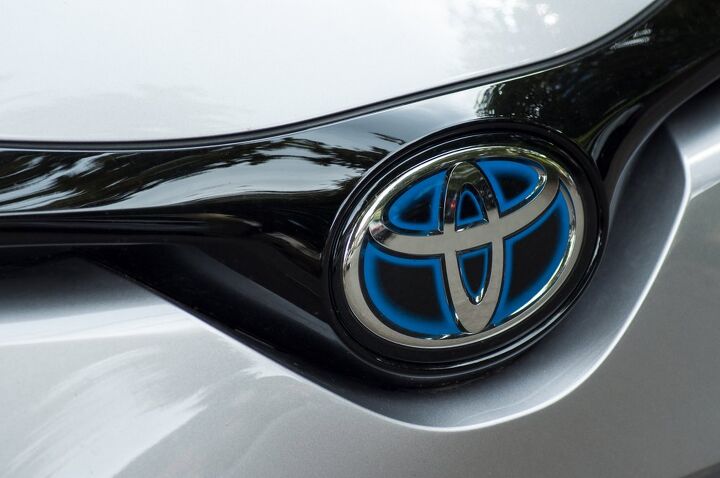

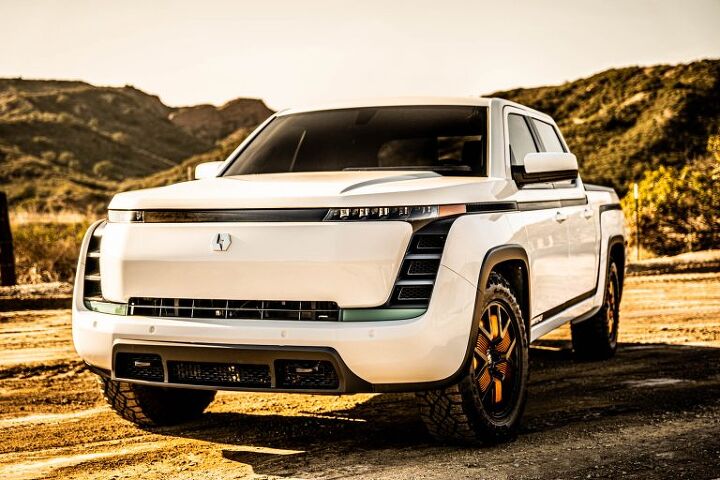

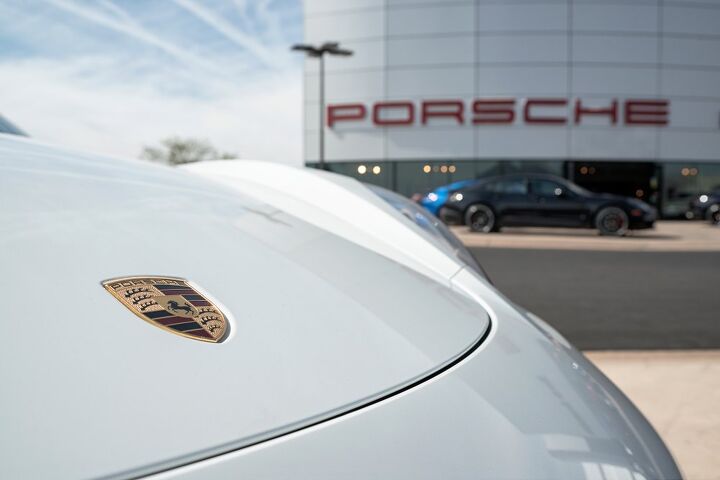

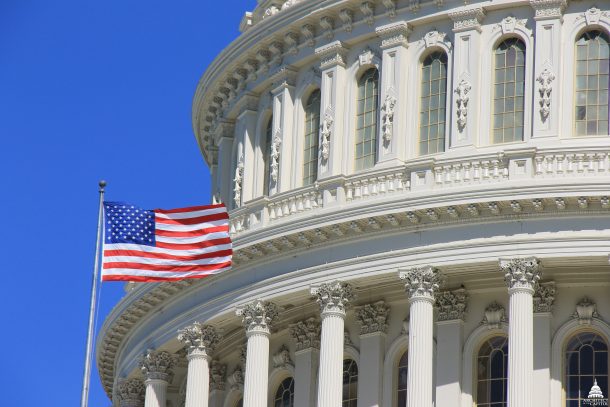
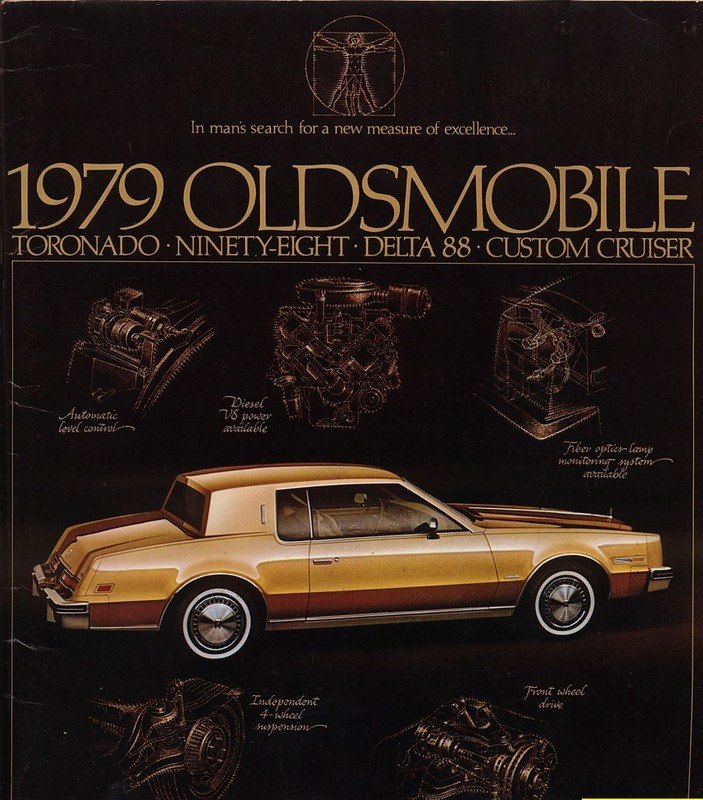

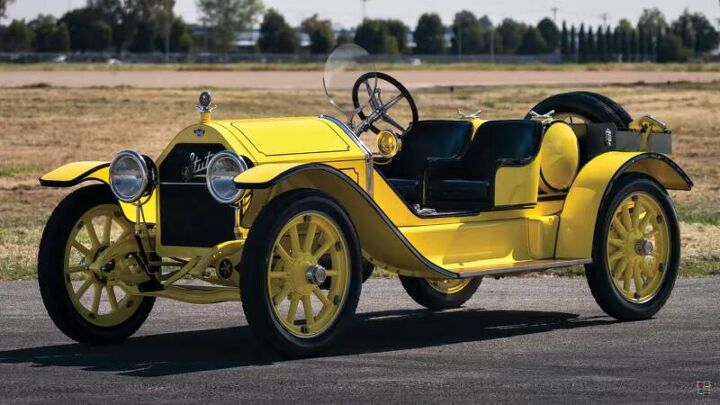


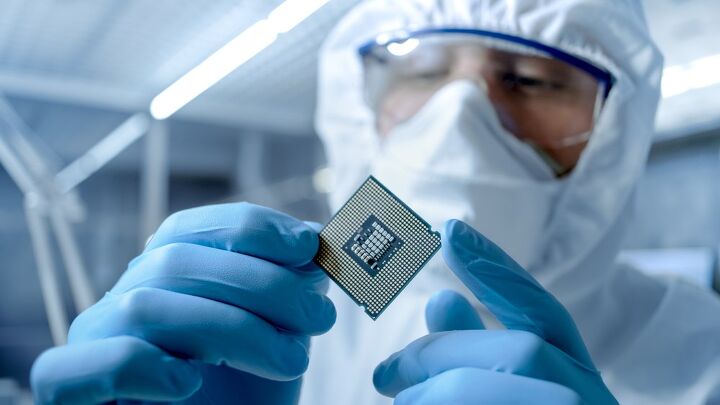
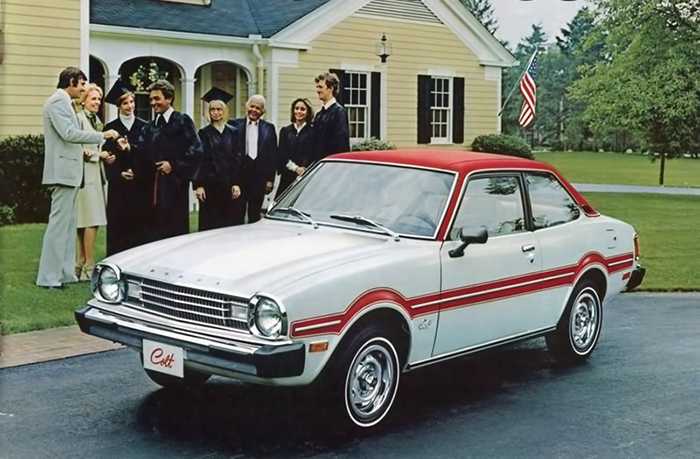
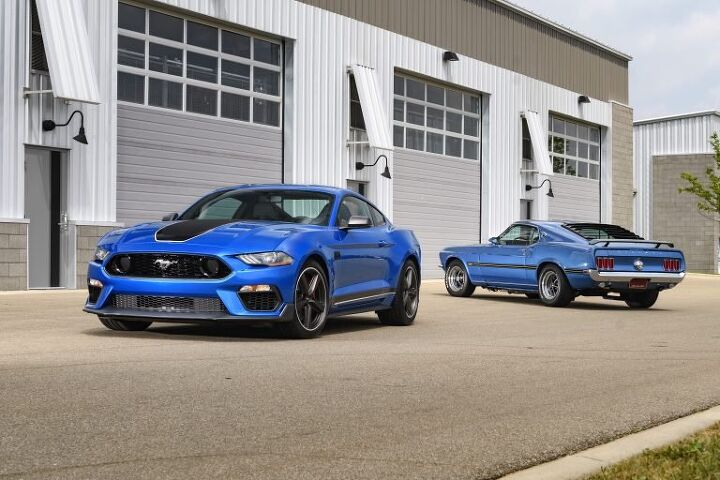
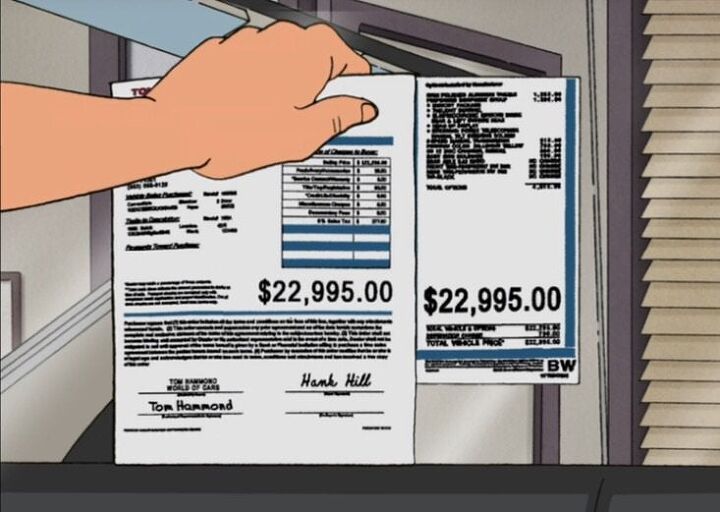

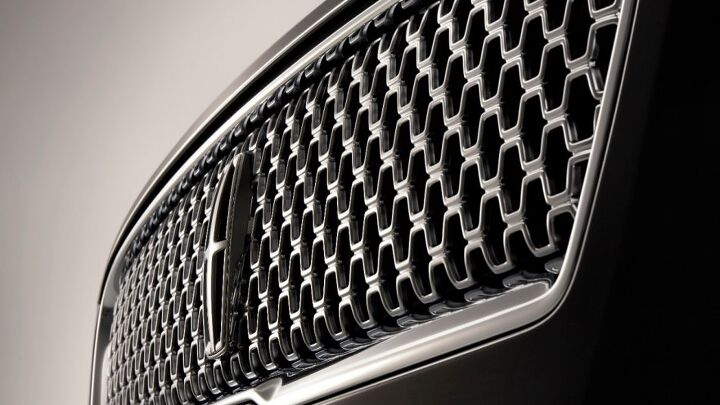
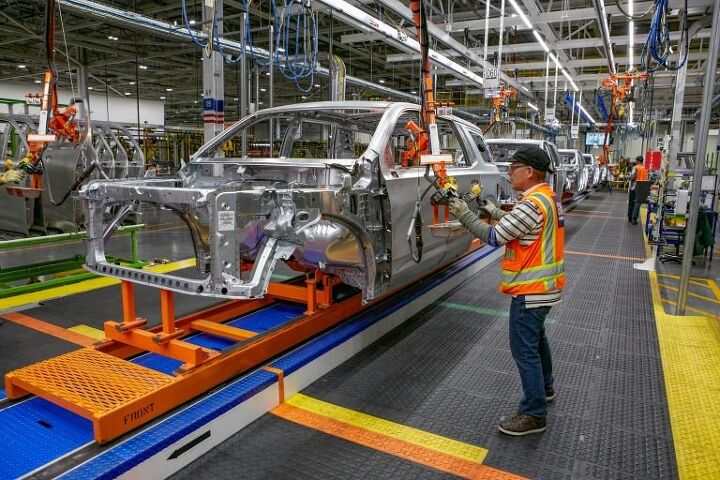

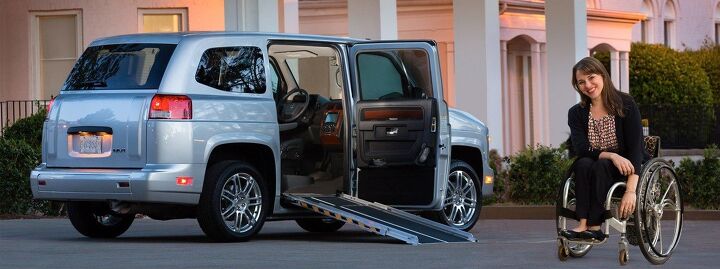

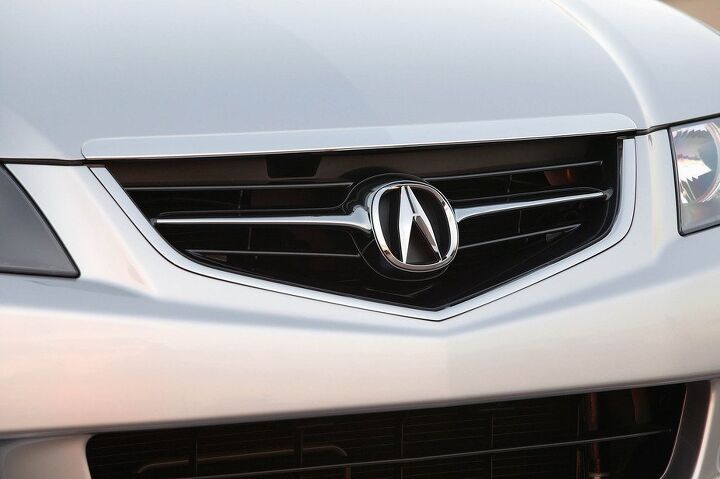


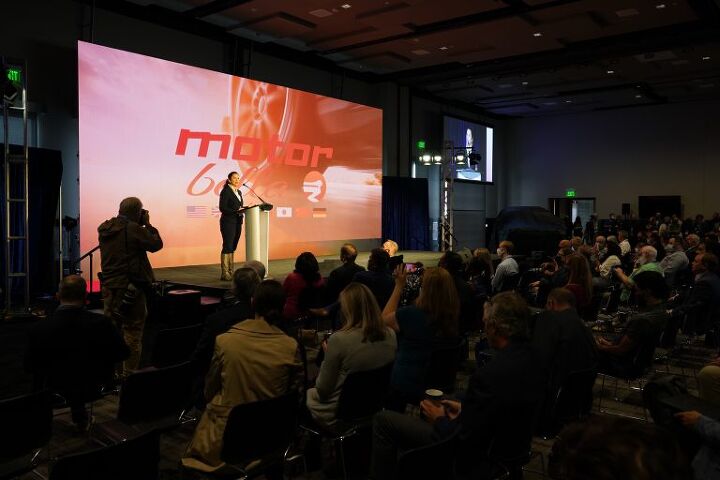

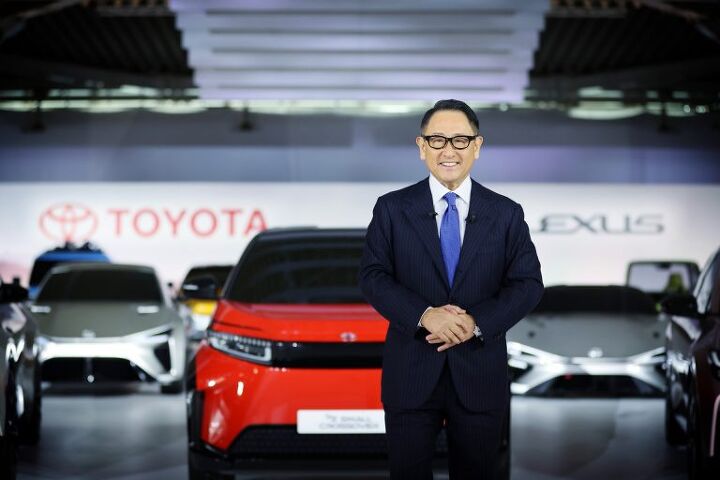







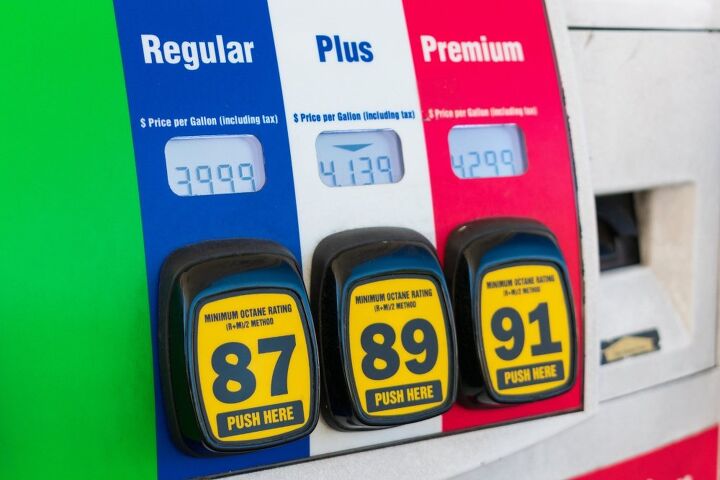


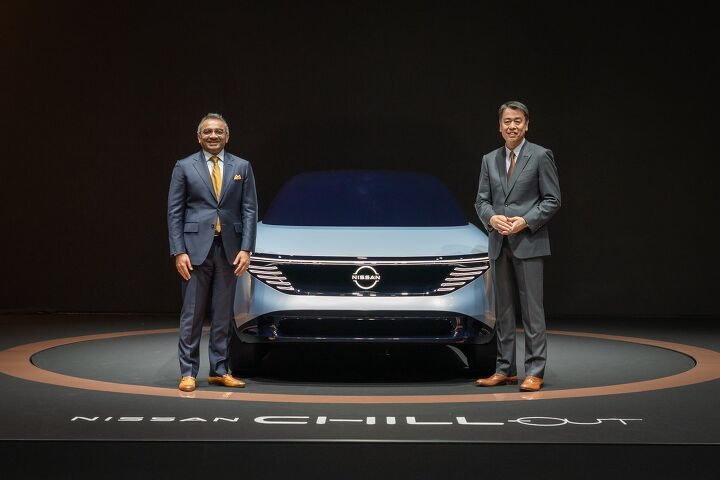


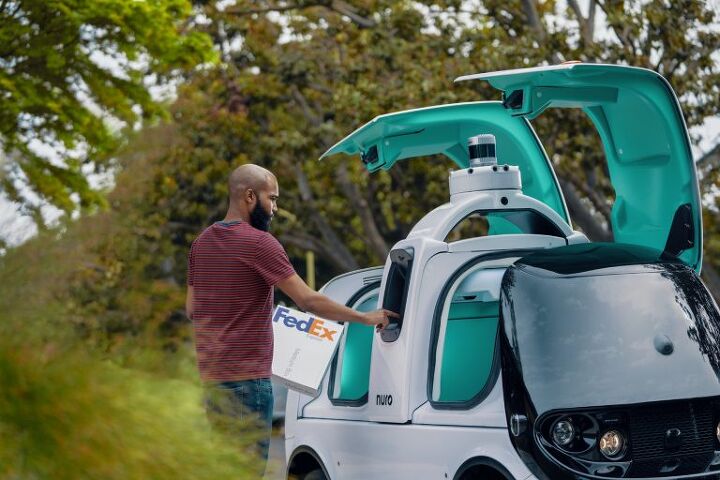

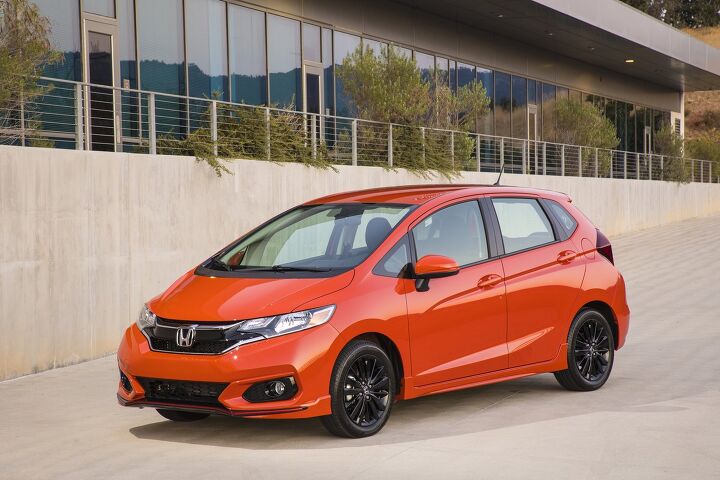
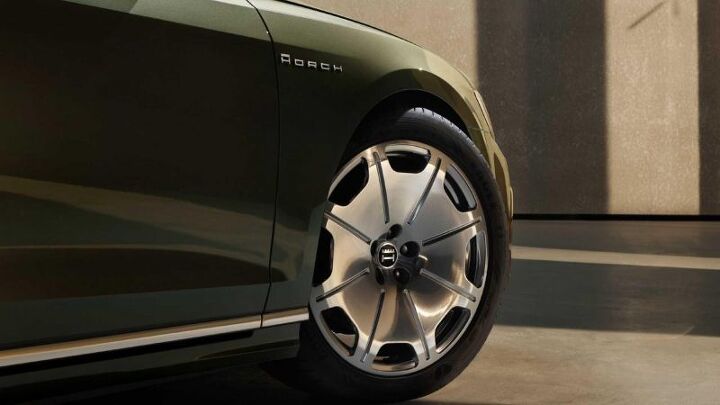

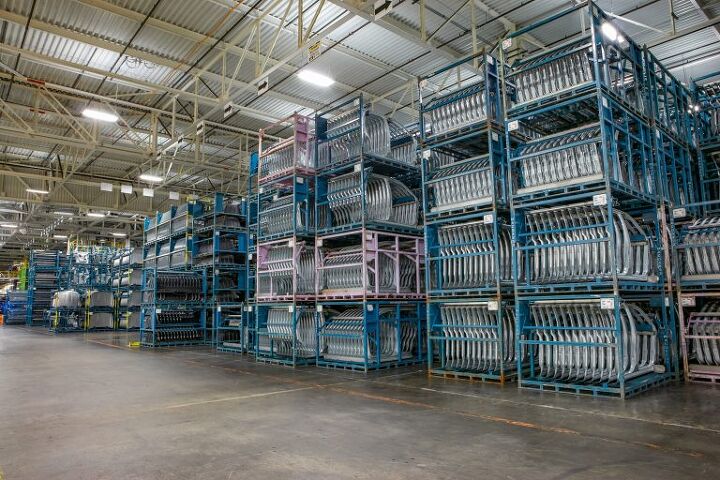

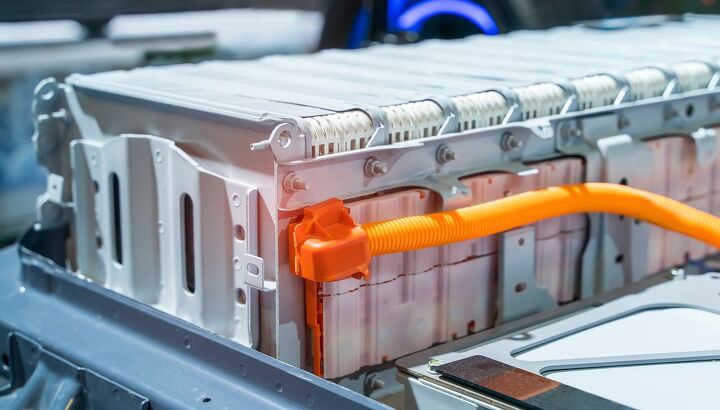

















Recent Comments